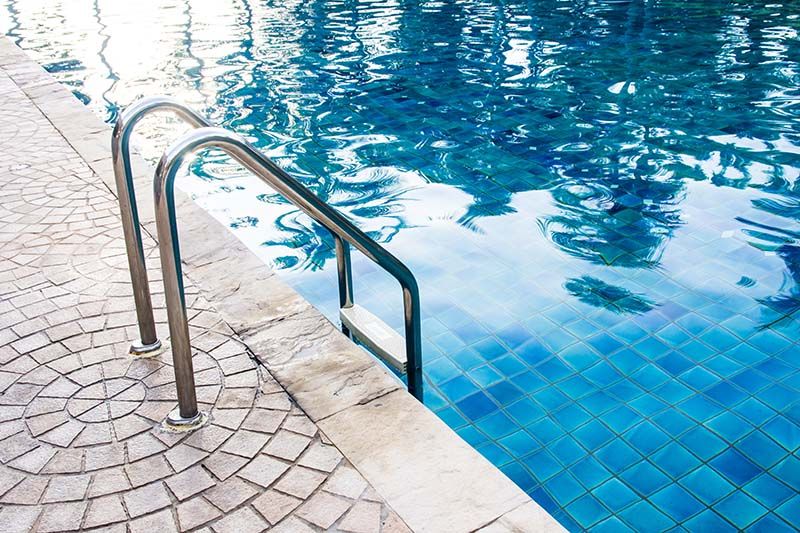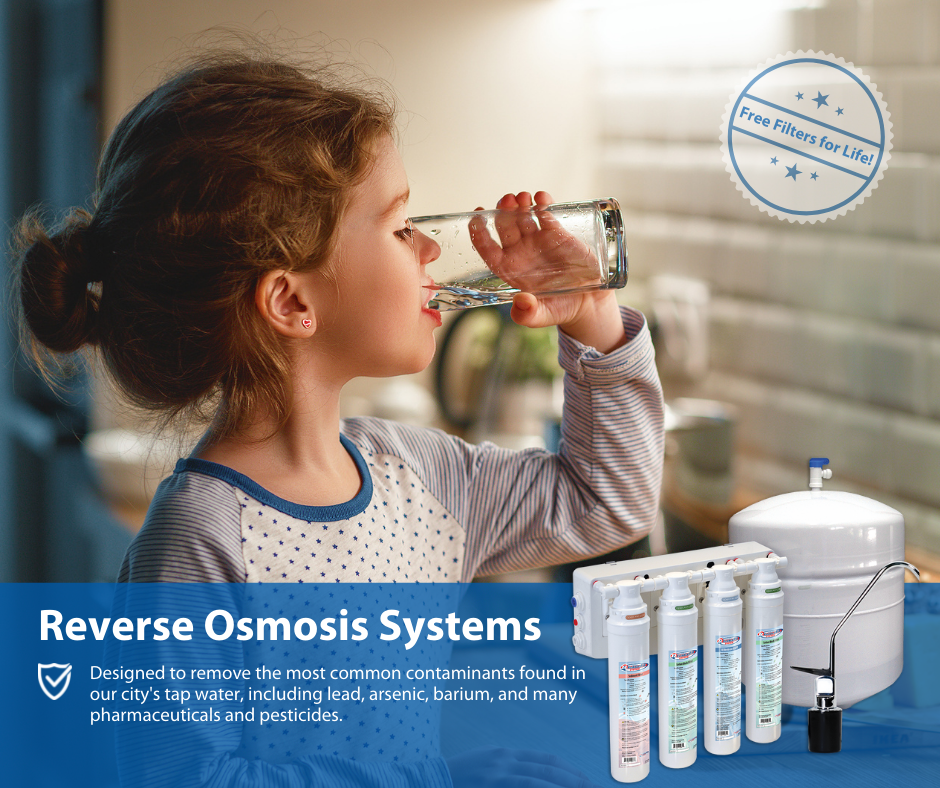While most municipalities add what are considered safe amounts of chlorine and chloramine (a chlorine compound) to the water supply, many Atlanta residents choose to remove chlorine from their water for taste and health reasons.
To remove chlorine from your drinking water, you have three options:
Distillation or evaporation of chlorine from the water
Chemical neutralization chlorine (with Campden tablets)
Filtration of chlorine in water (by reverse osmosis or charcoal filters)
We'll go into each method in more detail, but first we'll explain what chlorine is and why it's in Atlanta's water supply.
Want to remove chlorine from your drinking water? Call Reliable Heating & Air at (770) 594-9969 or schedule an appointment.
Our water filtration experts will go over the systems we offer and recommend the best option for your home. You'll also get the same 5-star customer service we've been giving Atlanta residents for the past 40 years.

Need to Know: What is Chlorine and Why is it Used in Drinking Water?
Chlorine is a chemical compound that's commonly used as a disinfectant. While chlorine also exists as a solid (in some natural compounds like crystalline rock salt) and a gas (at room temperature), you'd likely recognize it as a liquid primarily used as a cleaning agent and disinfectant for drinking water and water features like swimming pools, fountains and more.
Chlorine vs. chloramine
You might have also heard of "chloramine", which is similar to chlorine but not the same. Chloramine is essentially chlorine that contains ammonia, another compound that's primarily used as a fertilizer and cleaning agent. Chloramine in drinking water acts as a secondary disinfectant because it lasts longer and has fewer byproducts than chlorine.
Why are chlorine and chloramine in drinking water?
Chlorine and chloramine are added to municipal drinking water to control the presence of water-borne microbes (parasites, bacteria, viruses, etc.). Many cities are starting to use chloramine over chlorine because, in addition to lasting longer, it tends to have a less noticeable taste and odor.
Is chlorine safe to drink?
According to the CDC, chloramine and chlorine levels up to four milligrams per liter are considered safe—meaning you're unlikely to suffer harmful health effects.
Chlorine becomes unsafe when exposed to high levels of it over a period of time, but that kind of exposure most commonly comes from household cleaning agents or chlorine tablets for swimming pools.
Many Atlanta homeowners want to remove chlorine from their drinking water simply because they don't like the bleach-like taste and smell of it.
Does Chlorine Evaporate Out of Water?
Yes, chlorine will evaporate from water. This is because chlorine is a volatile substance that readily turns into a gas, especially at room temperature. Chlorine, commonly used to disinfect water, exists mainly as dissolved chlorine gas (Cl₂), hypochlorous acid (HOCl), and hypochlorite ions (OCl⁻). Among these, chlorine gas is the most volatile and can escape into the air, especially when the water is exposed to open air, warmed, or agitated. Leaving water uncovered for 24 hours can allow most of the chlorine to evaporate. This natural process, known as off-gassing, is why tap water sometimes has a noticeable chlorine smell that diminishes after the water stands for a while.
The rate at which chlorine evaporates depends on several factors, including temperature, surface area, water agitation, and pH level. Higher temperatures and increased movement in the water accelerate chlorine loss. Boiling the water or using activated charcoal filters can also accelerate the process. Additionally, the pH affects chlorine's chemical form, influencing its volatility. This evaporation and chemical degradation process is important in water treatment and pool maintenance, as it affects the disinfection efficiency and water quality over time.
Here's How to Remove Chlorine From Water: Your Options
We'll go over the three ways you can remove chlorine or chloramine from your home's water supply.
1. Distillation or Evaporation of Chlorine From Water
Since it turns into a gas at room temperature, chlorine will eventually evaporate if you let your water sit before using it. How long you need to let it sit depends on the temperature. Chlorine in water sitting in the fridge will evaporate completely within 24 hours, but will do so faster in warmer temperatures.
You can speed up this evaporation through distillation, which is just evaporation by boiling. Boiling water for 15 minutes will remove the chlorine.
While evaporation is a natural solution to removing chlorine from water, it's time-consuming and will increase your electric bill if you choose the distillation method.
2. Chemical Neutralization (Campden tablets) of Chlorine in Water
You can remove chlorine from water by neutralizing the chemical with Campden tablets. These tablets are made of potassium or sodium metabisulfite and primarily used by wineries and breweries to kill bacteria that inhibits the growth of wild yeasts in wine, beer and cider.
Campden tablets are also quick and effective at eliminating chlorine and chloramine from drinking water, with one tablet neutralizing about 20 gallons of water in 20 minutes—making it relatively inexpensive, too. But the tablets can be harmful if you or anyone in your family is allergic or intolerant to sulfite (the main ingredient). This method also requires space, like pitchers or other containers, for you to mix the tablets with your drinking water.
3. How to Remove Chlorine from Water: The Best Way - Filtration
The most effective method for cleaner, better-tasting water is to install a chlorine filter at your water supply. You can install either a:
Whole-house chlorine filter: Attaches to your home's water supply line (usually in the garage or basement) to remove chlorine from all of the water your household uses. These filters use an activated carbon filter, which is the most effective filter type for removing chlorine from drinking and cooking water.
Reverse osmosis system: Attaches to a single fixture (most commonly the kitchen sink) to provide water that's not only filtered for chlorine, but most of the other contaminants in Atlanta's water supply. Reverse osmosis systems have a 4-stage filtration process, making them highly effective at removing additives and contaminants. You can learn more about the pros and cons of reverse osmosis systems in our blog.

Want to Remove Chlorine From Your Atlanta Drinking Water? Call Reliable Heating & Air.
Call us today at (770) 594-9969 or schedule an appointment for a free in-home estimate.
We've been offering the most reliable water filtration service in the greater Atlanta area for more than 40 years. Our plumbers will listen to your concerns, then go over your chlorine water filter or reverse osmosis system options. We'll help you get purer, chlorine-free drinking water in no time.

